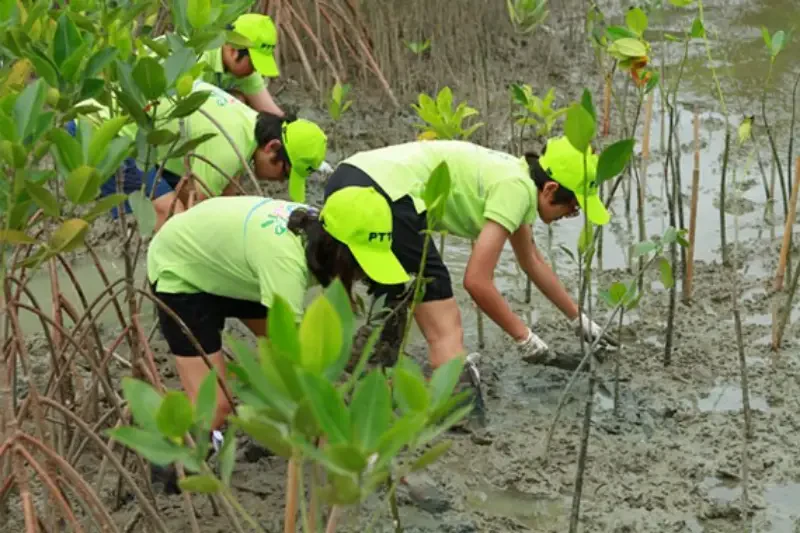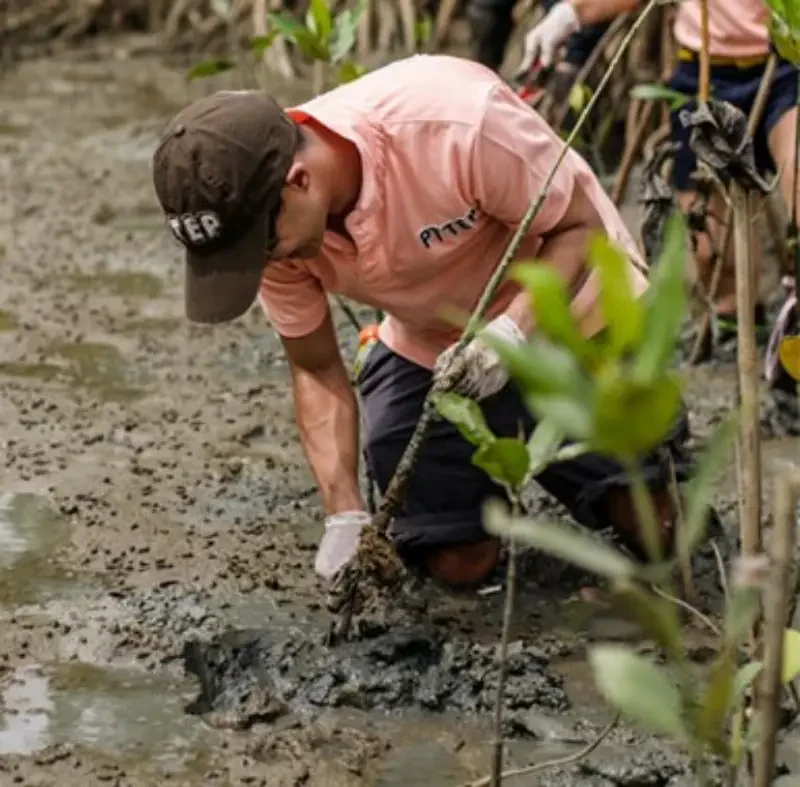

Corporate Social Responsibility Project
Mangrove Reforestation Project
Mangrove reforestation project targets to increase biodiversity and marine resource abundance, through the restoration of degraded mangrove forests and turning it to Thailand's coastal hatchery centers. The project sets the goal to expand mangrove forests to increase carbon sinks. To date, PTTEP received the permission to grow forests in total of a 5,007.15-rai area for carbon credit. From 2023 through 2030, to meet the goal, the forest areas will be expanded every year while the maintenance will continue until 2039. In the meantime, Kasetsart University will collect data from all plots for the development of Biodiversity Baseline. A forest safeguard network for climate change adaptation was established in PTTEP's mangrove forest areas, to safeguard the reforested and rehabilitated forests and mitigate the future impacts of climate change on coastal areas. Meanwhile, the forests act as natural carbon sinks and help increase benthic organisms.


Aside from the executives, employees and family members in the reforestation activity, the project also aims to build a network to conserve and protect PTTEP’s mangrove forests and create jobs for local people. In 2030, the mangrove forests are expected to adsorb carbon dioxide equivalent to support the greenhouse gas emission reduction target as part of the “EP Net Zero 2050” and increase benthos by 25% compared to the period before project implementation.
PTTEP has carried out analysis on Social Return on Investment (SROI) of this project by measuring the social impact of the program with the financial quantification calculation (monetization). This method is intended to measure the value of the financial impact of the program that compares to the value of the impact to the cost of the program that has been invested into. It appears that the value of the SROI ratio is 4.40 : 1